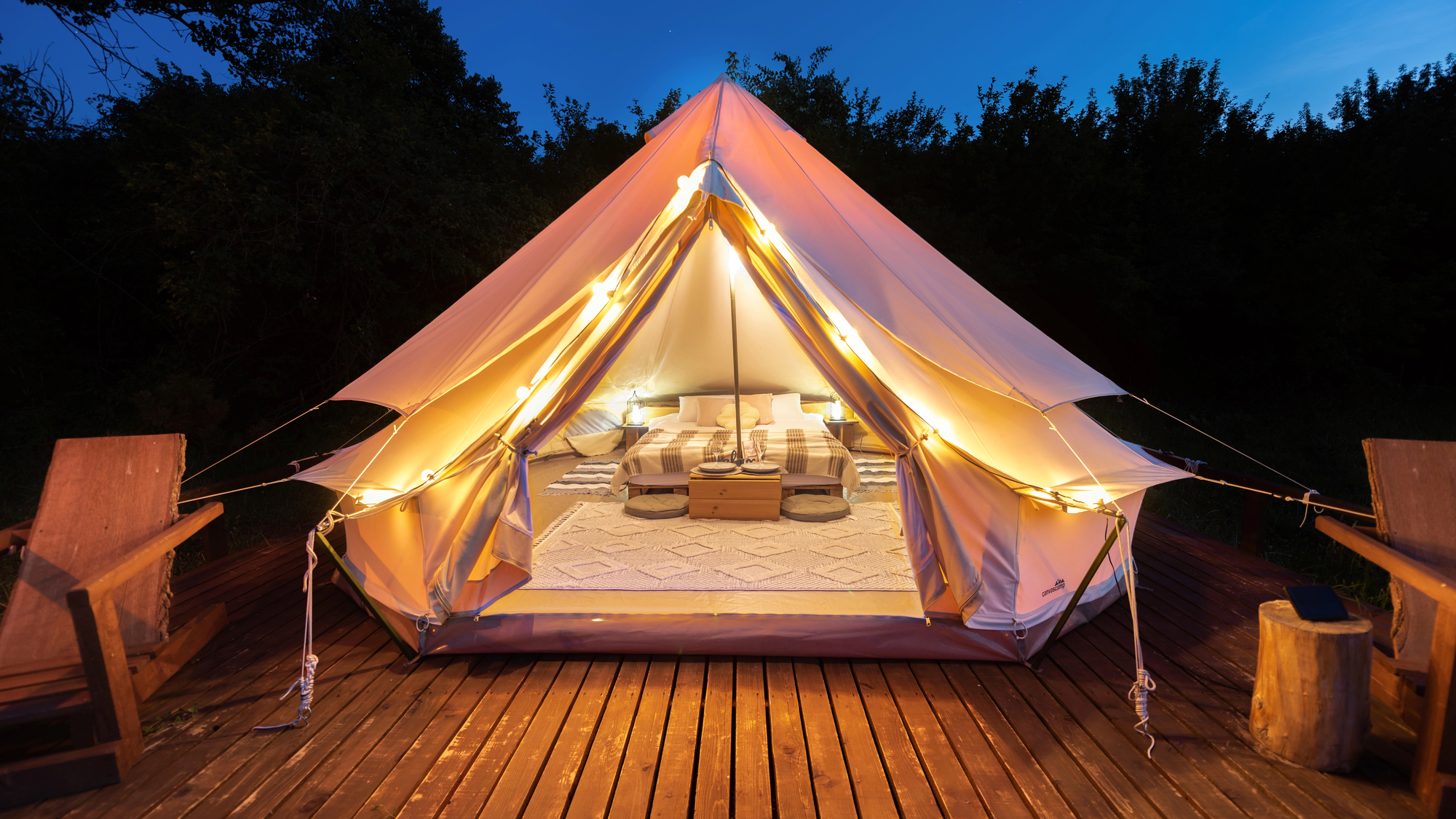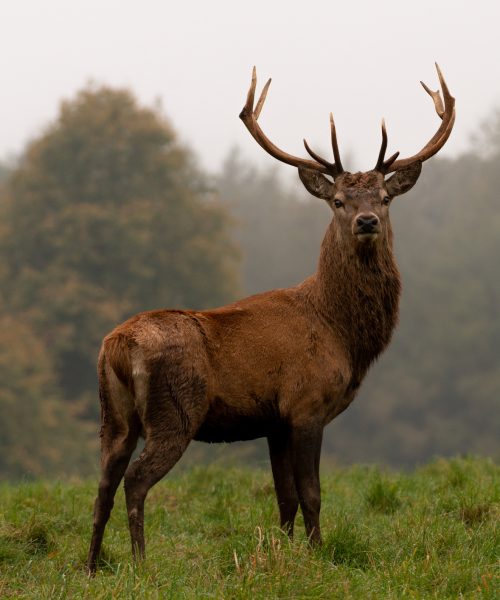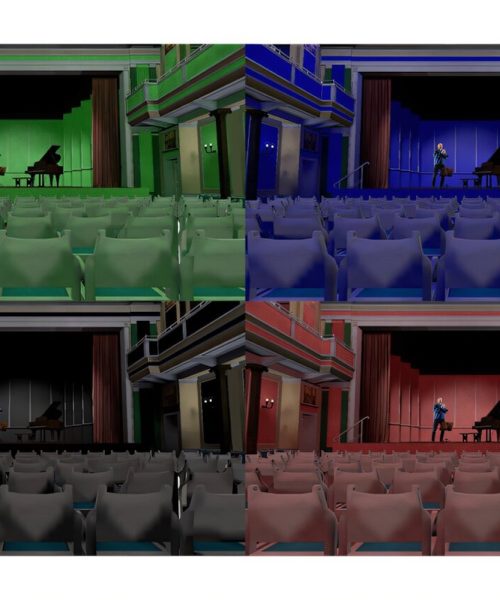There are plenty of studies that suggest that being out in nature is good for your health, so it makes sense that sleeping beneath the stars would be, too. But if you’re not a person that’s prone to camping, are you missing out?
“Like most things related to sleep, there’s a lot of personalization involved,” says Dr. Jennifer L. Martin, a spokesperson for the American Academy of Sleep Medicine (AASM) and former president of its board of directors. “What helps one person sleep well may not work for everyone.” Still, there seems to be real evidence that a night (or three) in nature can help both your body and mind reset.
Why some people sleep well outdoors
Unhoused populations aside, Martin believes there are two main reasons why some people feel like they sleep really well outside. The first is that many of the factors that disrupt our rest in a normal sleep environment—things like smart phones, television sets, and laptops—have been removed from the equation. When you’re out in the wilderness things like electricity and good WiFi are typically limited, and you’re in a place that’s “quiet, cool, and comfortable,” she says. “All factors that can benefit sleep.”
Secondly, people who find themselves sleeping outdoors are often on vacation. “Overall stress levels tend to be lowered,” she says, “which can lead us to be more relaxed and allows us to fall asleep more easily and sleep more soundly.”
There’s also proof that spending time outdoors in general promotes better sleep quality.
Sleeping outdoors can reset your body clock
Nature can reset our circadian rhythm, the body’s natural 24-hour clock, helping us synchronize our bodies with the natural rise and fall of the sun. This ensures we can maintain healthy wake-sleep cycles.
Related Sleep Stories
“Human sleep changed a lot with the advent of artificial lighting,” the kind that comes from electricity, says Martin. Before that, one of our main sources of light exposure beyond the sun was from fire. Although a campfire is still an artificial form of light, the warm yellows and reds of its flames are less disruptive to our wake-sleep cycles than the bright, cool blue lights emitted from computers, TVs, and fluorescent bulbs.
Disruptive blue wavelengths can wreak havoc on the body’s internal clock, even suppressing the production of melatonin—a hormone that helps regulate our circadian rhythm. By sleeping outdoors we’re limiting those illuminated snooze-disrupters and allowing melatonin to occur naturally while we rest. The morning sunlight then keeps our bodies in balance, cueing up the production of serotonin—the “feel good” hormone—to start the day.
Creating the right outdoor sleep environment
“Noise, light and temperature—all of these things definitely come into play when you’re sleeping outdoors,” says Martin, “just like when you’re in your home environment.”
For the best night’s sleep, Martin recommends considering what relaxes you and makes you cozy when planning a night under the stars. If you’re staying in a campground, think about booking a spot that’s removed from roadways, so that you’re not dealing with constant headlights. The sounds of nature can be much more calming than artificial sounds like TV sets and traffic horns, but bring along ear plugs in case noisy neighbors tend to keep you up at night. Check that you have an appropriate sleeping bag and enough layers for adequate warmth, and have a comfortable surface to sleep on. “I bought my son, who’s a big outdoorsman, a really nice sleeping pad [which provides padding and thermal insulation beneath a sleeping bag] for camping,” she says. “He’s been telling me what a difference it makes.”
The ideal sleeping spot should be flat and level, away from the wind and possible falling branches, and out of the line of water drainage paths. When it comes to getting proper ZZZs, comfort and safety are key.
Consider glamping
“If the thought of sleeping outside is going to stress you out, it sort of counteracts the potential benefits,” says Martin.
One alternative to spending the night in a tent (or even sleeping in the open air) is glamping, which combines the benefits of being outdoors with many of the comforts of home. Think furnished canvas tents or yurts, proper beds, electricity, and often heating and/or air conditioning. “You can have that experience of sleeping in nature without giving up many of the creature comforts that many people have come to like and enjoy.”

Glamping offers a kind of middle ground for people who aren’t quite ready to ‘rough it’ but want to enjoy the many perks of being out in nature. “You still wake up in the morning and walk out, breathe in fresh air, and see beautiful scenery and trees and all of that good stuff,” Martin explains.
The most important factor: a good night’s sleep
While breathing in outdoor air is generally advantageous, things like wildfires (which can release dangerous smoke from fine particulates) and allergens in the environment may do more harm than good. Whether we’re sleeping outside or getting comfy in our beds, getting a good night’s sleep should be our primary goal, says Martin.
The benefits of a good night’s sleep are countless. “Getting the right amount of sleep consistently is probably the best way to avoid chronic health problems and to maintain good mental health. It’s really good for immune systems, reduces inflammation, and helps regulate blood pressure.” Our moods are often better, as are our relationships with other people.
Most adults need seven or more hours of sleep to maintain our physical and mental health. Having a consistent sleeping schedule is also important. “It doesn’t have to be perfect, but you should go to bed within an hour of the same time every night,” says Martin. “You should get up around the same time,” too, give or take an hour.
Add in the many health benefits associated with being outdoors, and it’s a win-win situation.
“Spending time in nature is just so good for us in general,” says Martin.
Bedding down under the stars not only parlays these benefits, but it also allows us to get our bodies and minds back in balance.
This story is part of Popular Science’s Ask Us Anything series, where we answer your most outlandish, mind-burning questions, from the ordinary to the off-the-wall. Have something you’ve always wanted to know? Ask us.






